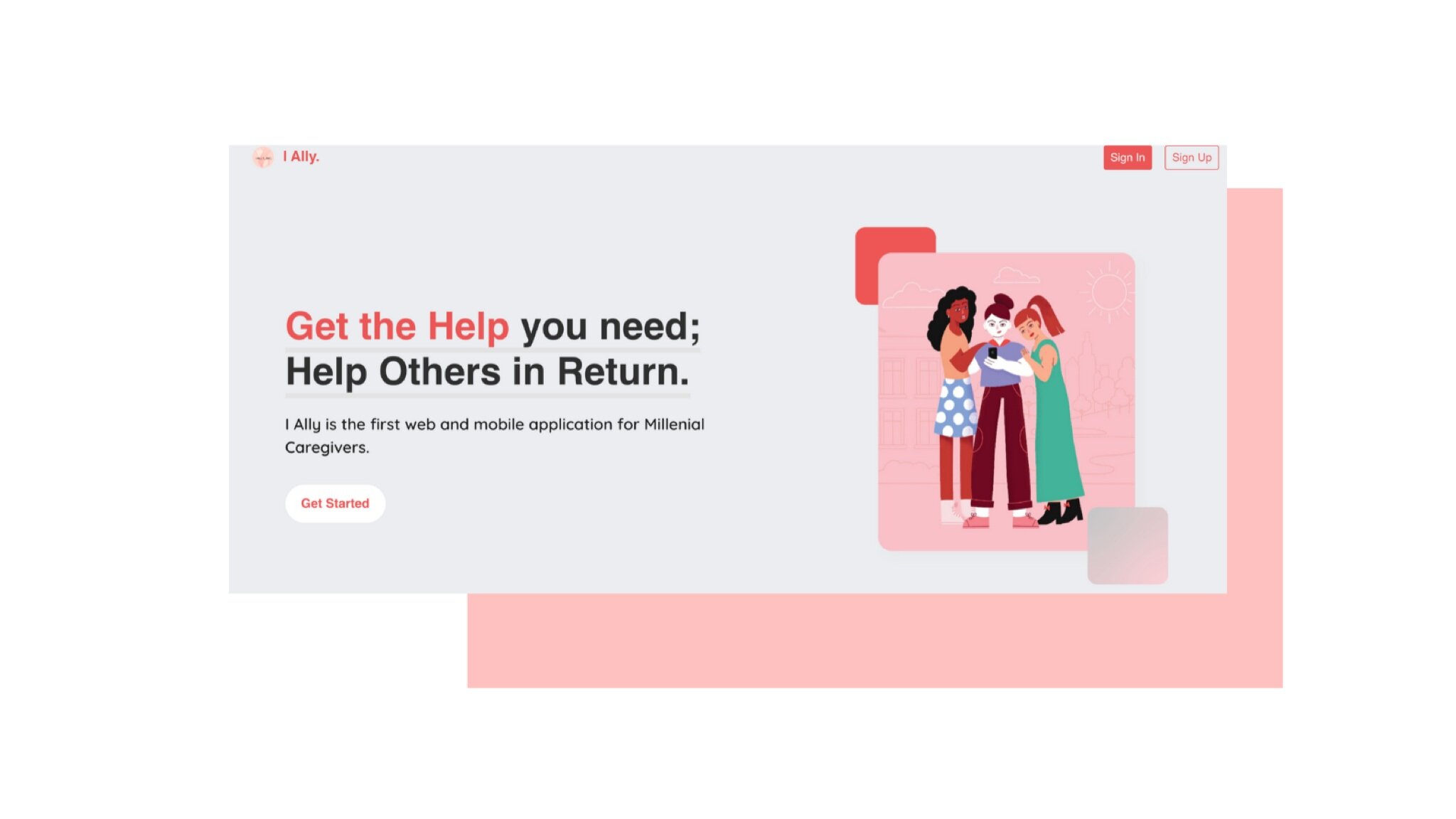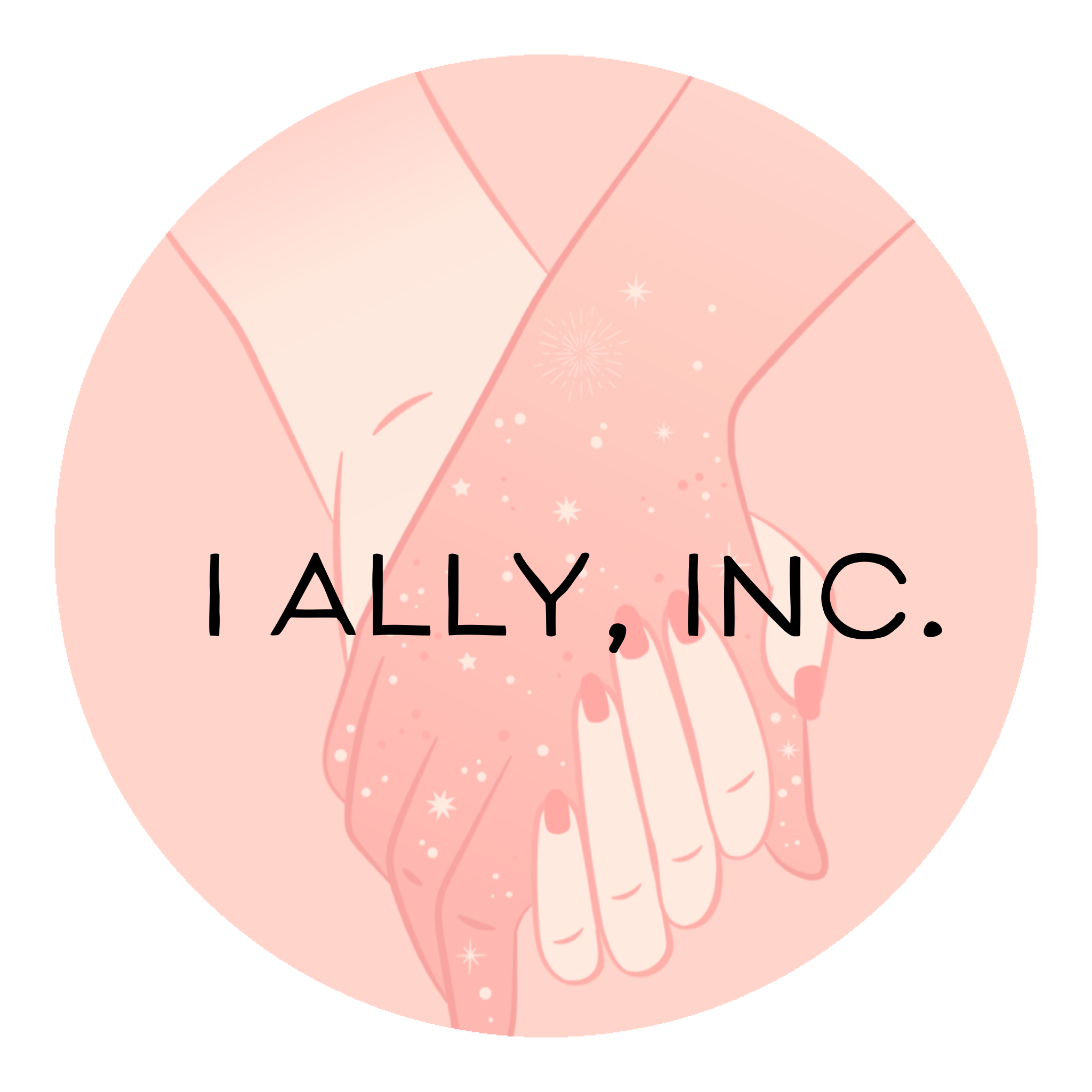WoW Woman in HealthTech | Lucinda Koza, founder of I Ally
Interview by MarijaButkovic
After her father had a stroke in late 2018 and she became his full-time caregiver, Lucinda Koza created I Ally, a holistic support app for young family caregivers. Lucinda is a Lyfebulb Patient Entrepreneur and has been featured in Authority Magazine & Thrive Global's Heroes of the COVID Crisis Series. She is a Founding Member of Tech Ladies, owns the social media marketing agency Got It Done Gal, and premiered a short film, Laura Point, at the Cannes Film Festival in 2016. She is based in Union, New Jersey.
Lucinda, what is the idea behind your project / product and how did you come up with it?
In October of 2018, my father suffered a debilitating stroke, which caused him extensive brain damage. I became his full-time caregiver. I was so young, and I was devastated, overwhelmed, totally alone, and had no idea what I was supposed to do. I couldn’t believe the lack of advocacy and resources available for family caregivers – much less young family caregivers who are on their own.
After doing research and hearing the voices of other people in my situation, I realized the scope of the crisis that family caregivers are facing. There are over 40 million unpaid family caregivers in the United States alone – 25% of which are Millennials. Over half of family caregivers report moderate to severe burden. Being hit with the responsibility of care when one has no support can result in depression, financial ruin or complete life derailment.
I knew I needed to fill this space as an advocate for this population. I also knew that the burden of the isolated could be alleviated if we were just connected to each other. So, I created I Ally, a holistic support app for family caregivers, as a way to connect us to each other and a way to connect users to action-oriented resources and solutions like mutual aid, administrative advocacy, Telehealth, a database of providers including mental health professionals, financial and legal counsel, access to clinical trials and more.
When did all start and do you have other members in your team?
The idea cooked within me for about a year, and then when the COVID-19 Pandemic hit the United States, the need became even more urgent. I created the first piece of I Ally, which was the mutual aid platform, in which someone could post a need or ask for help and another caregiver could respond with an offer to fulfill that need.
I am a solo founder, but I have been lucky to find developers at various stages that have helped immensely, and a public relations representative, Candice Smith, that has become vital to crafting the message and mission of I Ally.
How long did it take you to be where you are now?
It hasn’t even been two years since my father’s stroke changed my life. That two years has been transformative. It’s taken me this long emotionally to get where I am – to be able to use my experience to fuel the fire of I Ally, but to also be able to separate the two when I need to focus on logistical business elements. It took me a good while to go from ideation to nailing down the specifics of what I Ally would offer, and that is still evolving.
What was the biggest obstacle?
The biggest obstacle has been getting out of my own way and getting rid of perfectionism. Nothing is going to be perfect ever, and oftentimes ‘done’ is better than ‘perfect.’ It’s best to create a prototype, create the first iteration of your idea even though you know it will have pitfalls and stumbles, because that’s how you learn and create something better. Getting data and getting feedback will always be valuable even if it’s not sunshine and rainbows! I know a lot of artists and makers who have a tough time putting their work out into the world, because they feel a subconscious need to protect what they’ve made. However, if something is going to truly help other people, they have to see it and they have to experience it.
What are your biggest achievements to date?
We launched I Ally on Product Hunt on July 11, and it was upvoted to the #1 Product of the Day. This was a wonderful achievement because I got to interact a ton with the community – there were so many good questions and so much feedback. It also proves the need for a product like I Ally. I was interviewed in Authority Magazine and Thrive Global as part of their ‘Heroes of the COVID Crisis’ series – that was pretty mind-blowing. I also became a Patient Entrepreneur for Lyfebulb, which extends my reach as a patient advocate. I love that because it’s referring to the caregiver as the patient, which is what I want to do in terms of I Ally. The family caregiver’s health and wellbeing shouldn’t be forgotten.
What are the challenges of being an entrepreneur in the niche you are in? How about being a female founder / entrepreneur?
The challenge being an entrepreneur, especially a female one, in this space, is being taken seriously. It’s common that someone would look at I Ally and see a charity – which isn’t a bad thing, except it’s not a charity. Also, I’ve had some people say things like, ‘well, I don’t know if it’s really like that’ and I’ve had to say, ‘I do. I do know, and it is like that. That’s the whole point.’
What are the projects you are currently working on?
Right now, I am working on the mobile app version of I Ally, as well as using the data and user feedback from the web app to keep evolving.
Is #WomenInTech movement important to you and if yes, why?
Absolutely. Through tech, anything is possible. Innovation and invention is almost inseparable from technology. Tech has the potential to solve societal needs and make people’s lives better. It’s essential that women are in this space. Women are incredibly resourceful and deft problem-solvers. Advocating for women in tech is the same thing as advocating for our best possible future reality.
What is the most important piece of advice you can give to all female founders and female entrepreneurs out there?
Be authentic. We are human beings, and sometimes men are allowed to be human beings more than we are allowed to be human beings. We don’t need to overcompensate or adjust to that. Keep being authentic even when you can feel your very existence makes someone uncomfortable. Don’t make yourself small. Most of all, surround yourself with a diverse group of women – for support, for advice, for help, for networking – and hire them if you can!
What will be the key trends in the health tech industry in the next 5 years and where do you see it heading?
The COVID-19 pandemic has caused the necessity of healthcare providers, organizations and insurance companies fully embracing Telehealth and ways of providing remote care. Digital health companies and tech solutions that enable and help facilitate that remote care will be what we look to for this transition. That is where the health tech industry is heading. I believe part of this is empowering the family caregiver to facilitate the remote care of their loved one. I hope this will go hand-in-hand with the democratization of care and access to care. I hope empowering family caregivers will lead to financially empowering family caregivers. This trend will lead to consumers or patients being more in control of their own care, which is how it should be.
Who are your 3 inspirational women in health tech?
I have been very inspired by Jo Aggarwal, the creator of Wysa. I am admittedly enamored with how she has combined AI and Mental Health. Katherine Ryder, the Founder & CEO of Maven Clinic, is an absolute rockstar. Of course, there is Joanna Shields of BenevolentAI, who may save the world.
Website: https://i-ally.com
Social media handles: Instagram, Twitter & Facebook: @iallyinc
LinkedIn: https://linkedin.com/in/lucindarogerskoza
This interview was conducted by Marija Butkovic, Digital Marketing and PR strategist, founder and CEO of Women of Wearables. She regularly writes and speaks on topics of wearable tech, fashion tech, IoT, entrepreneurship and diversity. Follow Marija on Twitter @MarijaButkovic.



